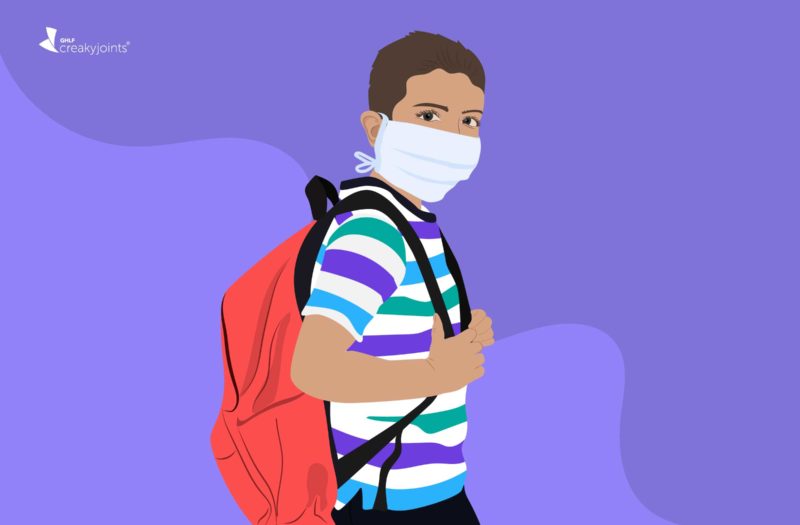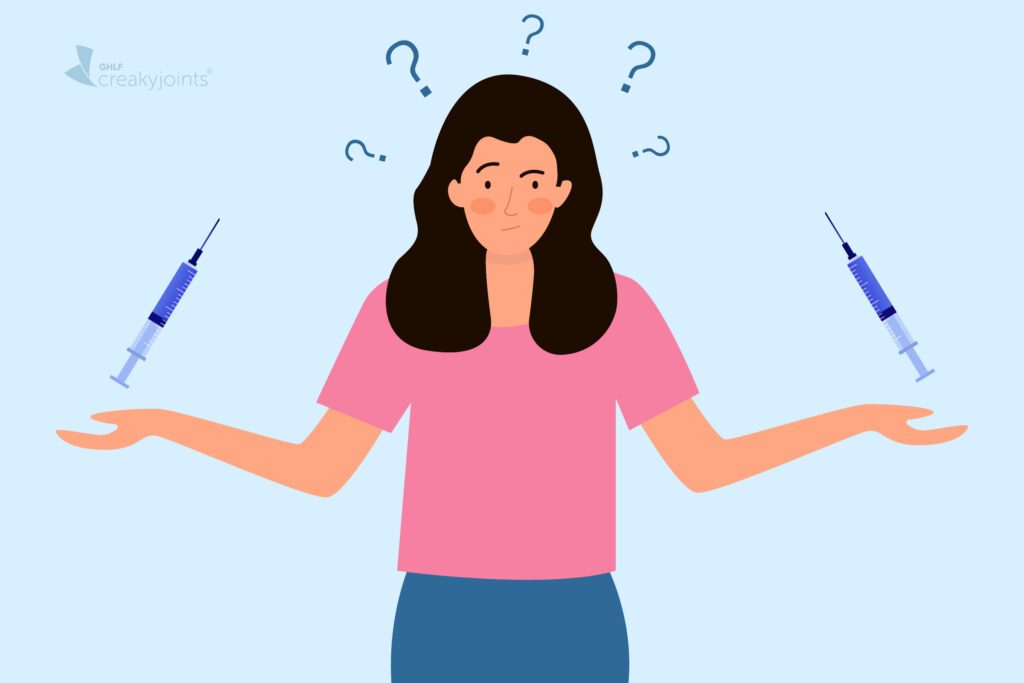Learn more about our FREE COVID-19 Patient Support Program for chronic illness patients and their loved ones.
Children with rheumatic diseases, such as juvenile idiopathic arthritis, may not have a particularly high risk of contracting COVID-19, new research shows.
A large international survey presented at ACR Convergence 2020, the annual meeting of the American College of Rheumatology, found that only a small percentage of children with rheumatic diseases were reported to have contracted COVID-19. All of those who did become infected had benign outcomes without significant complications, despite most of them taking immunosuppressive medications.
At the beginning of the pandemic, it was unknown if children with rheumatic disease would face a higher risk of COVID-19 and severe complications or even death than otherwise healthy children. Because many of these young patients take immunosuppressive medications to control their disease activity, they may be more susceptible to infections.
“At the time, parents and physicians did not know whether to continue a child’s immunosuppressive medications to prevent COVID-19 and related complications,” the study’s co-author, Jonathan S. Hausmann, MD, instructor in medicine at Harvard Medical School and a pediatric rheumatologist at Boston Children’s Hospital, said in a press release.
The researchers sent surveys to parents of children with rheumatic disease through social media and patient support organizations. Parents reported their child’s rheumatic disease diagnosis, medications, disease activity, whether the child ever developed COVID-19, and any potential outcomes they experienced if so.
Ultimately, the researchers gathered data on 427 children under the age of 18 from April 3 to May 8, 2020. The majority of the children lived in the Americas and were white, female, and between the ages of 5 and 14.
Most had juvenile idiopathic arthritis and were taking either conventional synthetic or biologic disease-modifying antirheumatic drugs (DMARDs). While both of these classes of drugs help to control arthritis, they may also suppress the immune system.
Other children in the survey had pediatric rheumatic diseases such as lupus, dermatomyositis, and autoinflammatory diseases.
Only 1.2 percent of the children in the study (or five out of 427) were diagnosed with COVID-19, and none of those five needed to be hospitalized or had severe outcomes.
That said, the survey may not fully represent all children with pediatric rheumatic diseases, since it was based on responses from parents willing to fill out a survey or who engaged with social media.
Still, the findings are important as parents, educators, policymakers, and physicians make decisions about sending kids to school during the pandemic. The results also show that there is currently no evidence that children should stop taking their immunosuppressive medication during the pandemic.
“Our study suggests that children with rheumatic disease should continue their immunosuppressive drugs during the pandemic, as it does not appear to place them at increased risk of COVID-19 related complications,” says Dr. Hausman.
The researchers note that further studies should assess the long-term effect of COVID-19 infection in patients with rheumatic disease, along with the rates of complications such as Multi-System Inflammatory Syndrome in Children (MIS-C), a serious condition that appears to be linked to COVID-19.
Get Free Coronavirus Support for Chronic Illness Patients
Join the Global Healthy Living Foundation’s free COVID-19 Support Program for chronic illness patients and their families. We will be providing updated information, community support, and other resources tailored specifically to your health and safety. Join now.
Hausmann J, et al. Impact of the COVID-19 Pandemic Among Children with Rheumatic Diseases from Around the Globe [abstract]. Arthritis & Rheumatology. November 2020. https://acrabstracts.org/abstract/impact-of-the-covid-19-pandemic-among-children-with-rheumatic-diseases-from-around-the-globe.






